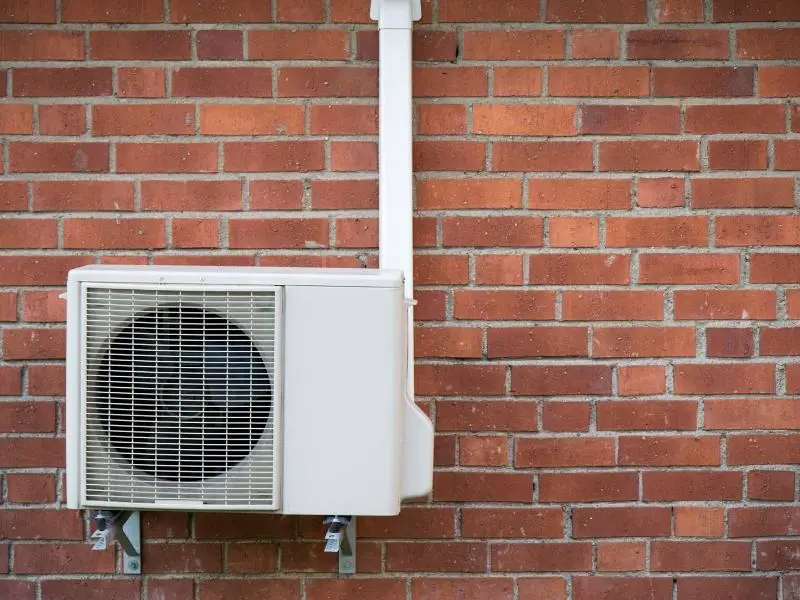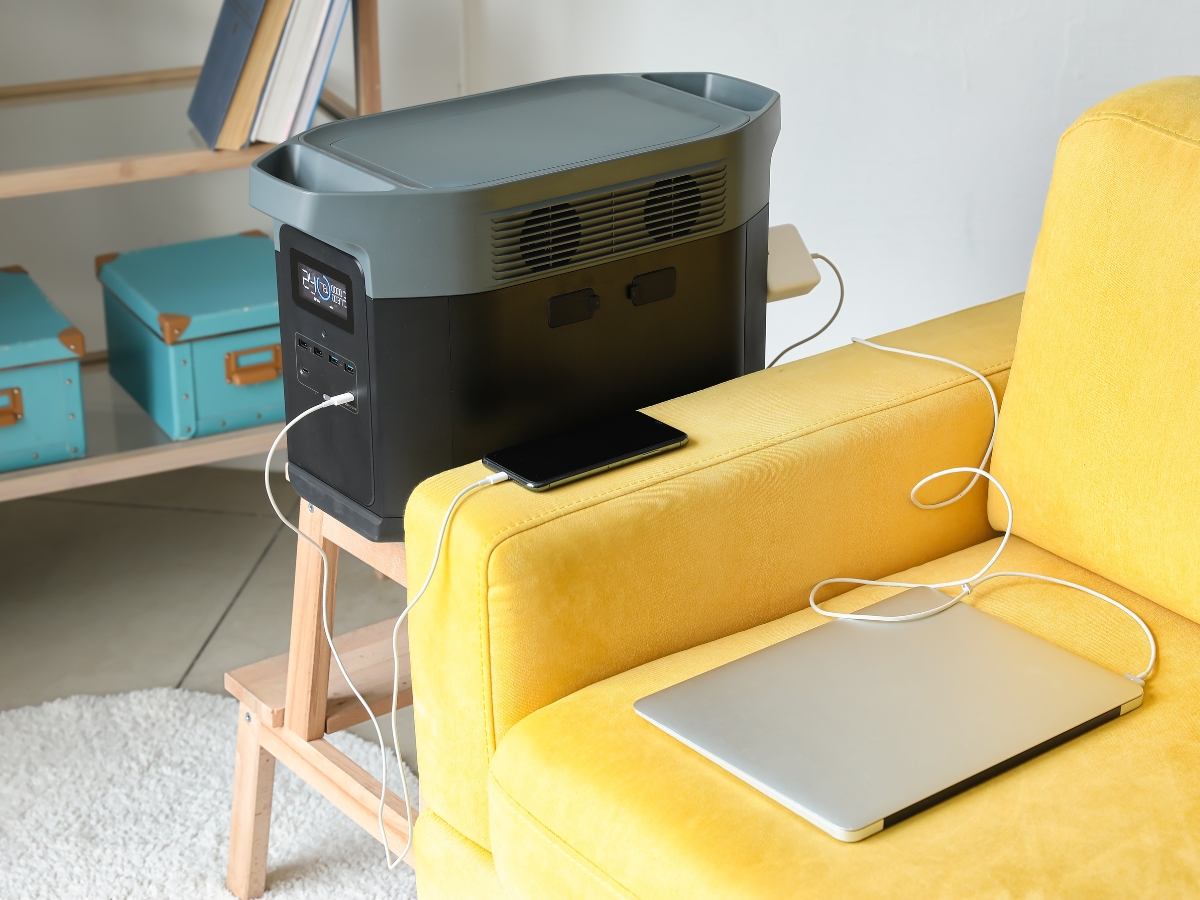Heat pump technology is constantly advancing, and as such, many homeowners are looking at these devices to cut their energy costs through winter and summer. Some factors affect the efficiency of any energy-saving strategy, and heat pumps are no different.
Heat pumps are worth the investment as they will save you a considerable amount of money on your energy costs, whether you use them for heating and cooling your home or perhaps for supplying hot water instead of a conventional boiler or applied to underfloor heating.
The critical factors that will determine if a heat pump is worth it for you are :
- How much money a heat pump could save you
- The size of the heat pump you would need
- Energy efficiency factors of your home
- The type of heat pump you choose
- How much do heat pumps cost
Let’s start with how much installing a heat pump could save on your energy costs.

How Does The Heat Pump Work?
The heat pump is a lot like your refrigerator in that it pumps heat and cold from one place to another and uses a refrigerant in the transfer process.
Unlike other appliances that use fuel like electricity to generate heat or cold, the heat pump ‘pumps’ heat or cold from outside to inside or vice versa, and it uses the outside air (air-air heat pumps) or the ground temperature (geothermal heat pumps) to create and dissipate heat.
The heat pump concept works by extracting heat from the outside air (even when it’s cold) and transferring it to a liquid refrigerant inside them. This compresses the refrigerant creating heat that is moved to the indoor unit, which passes air over the hot refrigerant and transfers that hot air into the house as required.
When required for cooling, the process is reversed, and cold air is pumped into the home and the warm air removed and released back to the outside or ground.
This simple mechanism immediately makes the heat pump more efficient than an HVAC system or conventional boiler as it is highly efficient. It often will deliver 3kWh of heat to 1 kWh of electricity used.
Straight off, you can see that the heat pump can reduce your energy costs by a significant margin, but certain aspects will make your heat pump even more efficient, especially if you want to use it for heating and cooling your home.
How Much Money Can You Save With A Heat Pump?
The United States Department of Energy advocates that a heat pump can reduce your annual energy costs by around 50% and save $1000 per year or more depending on where you live and whether your home is properly optimized for energy efficiency.
When replacing an electric boiler, the heat pump can save as much as 70% on energy costs, as water heating is usually the highest cost of energy in a standard home, along with heating and cooling.
Remember, this is an investment, and investments take time before they deliver a return, but with a heat pump, you will start to see a difference as soon as the system is installed.
The table below will show the savings you can achieve with a heat pump Vs. other heating systems.
| Existing Heating System | Savings With Heat Pump |
| Baseboard Heaters | $1287 |
| Fuel Oil | $947 |
| Fuel Oil Boiler | $929 |
| Propane Furnace | $855 |
| Electric Furnace | $815 |
| Natural Gas Boiler | $199 |
| Natural Gas Furnace | $105 |
The data was garnered from the National Renewable Energy Laboratory, and you can see the savings achieved by switching to a heat pump. The lowest saving and, therefore, potentially not worth an investment in a heat pump is where natural gas is being used.
But where fuel oil and baseboard heaters are being used, the savings are considerable, as are the savings when moving from propane and electricity.
If you are using propane, fuel oil, or electricity for your heating, switching to a heat pump is certainly worth it!
What Size Heat Pump Would You Need?
Sizing a heat pump is a detailed process, but without getting into a very long discussion, the table below shows the size of the heat pump you would need based on the square footage of your home.
| Home Size: | Heat Pump Size (In BTUs): | Heat Pump Size (In Tons): |
| 300 sq ft | 9,000 BTU | 0.75 tons |
| 500 sq ft | 15,000 BTU | 1.25 tons |
| 750 sq ft | 22,500 BTU | 1.88 tons |
| 1,000 sq ft | 30,000 BTU | 2.5 tons |
| 1,500 sq ft | 45,000 BTU | 3.75 tons |
| 2,000 sq ft | 60,000 BTU | 5.0 tons |
| 2,500 sq ft | 75,000 BTU | 6.25 tons |
| 3,000 sq ft | 90,000 BTU | 7.5 tons |
This is just a basic guide based on the size of your home, and there are a number of additional factors to take under consideration when looking at what size heat pump you would need.
Remember that the larger the home, the more savings would be achieved, so if you have a home around 1000 sq feet or bigger, your savings would be more than a smaller home, and when you get that first utility bill, you will know that the heat pump was worth it.
While it may take require a few years to offset the capital expenditure, the medium and long-term results in terms of energy-saving and money back in the pocket are inevitable, and there are steps you can take to increase those returns too.
Here is a brief overview of some of the other energy efficiency factors that determine how much money you will save.
Factors That Influence Energy Saving With A Heat Pump
- The size and shape of your home – the bigger the home, the more money you will save with a heat pump, as the associated operating costs will drop dramatically.
- Insulation – the average home loses most of its heat and ‘coolth’ through the ceiling and roof, and if your home is not well insulated, your hard-earned dollars are simply evaporating through the roof! Before putting in a heat pump, consider your insulation as a well-insulated home would need a smaller heat pump, and that will save you money on the cost.
- Windows – The number of windows and where they are placed in the home also impact the sheat pump size. When the windows are not energy efficient, energy and money will be lost through heat transfer.
- Appliances – All electrical appliances emit heat during operation, and this heat has to be factored in when calculating the size (and therefore the cost) of the heat pump required.
- People in the home – the number of people in the home also impacts the size of the heat pump required, and people emit heat. They influence the temperature environment based on personal comfort preferences.
- The local climate – people living in warmer areas with more consistent temperate climates could reduce the size of their heat pump by as much as 30%-40%, while people living in colder climates may need to increase the size of their heat pumps by the same margin.
- If your existing systems have available infrastructure like piping and ducting, the installation costs would be lower as the heat pump can be connected without additional construction.
Out of all of these factors, insulation is probably the most important, and if you can either install or improve your insulation, you will see a far better return for your money.
The good news is that a competent installer will have the tools to calculate the right size heat pump and take all of these factors into account.
What Types Of Heat Pumps Are Available?
Generally speaking, heat pumps have two basic types you can consider. The first is the air-air heat pump used to heat and cool the home, much like an HVAC system. The second is a geothermal or ground loop heat pump.
The heat pump variation is the air-water system that would use the heat pump to replace the boiler, and here, you could supply a family of four with hot water for about $15 a month- so a heat pump here would be worth it.
You also get hybrid systems based on the same air-air principle used for both heating and cooling and water heating.
The second type of heat pump is a geothermal or ground loop heat pump. This system uses the heat from the earth found between 6ft and 10ft underground. This heat source is incredibly consistent and not subject to seasonal air temperature fluctuations as an air-air system would be.
The highest cost with this system is the digging and laying of ground pipes as these act as the heat transmitters under the ground and allow the system to move heat to and from home.
If you can utilize geothermal energy for your home, that would be the first prize as this energy source is plentiful if you have it available in your area. If you plan to stay in your home for a long time, then the geothermal system would be ideal as it can last around 50 years and require little maintenance.
How Much Do Heat Pumps Cost?
On average, a heat pump would cost around $10 000 to supply and install, but these prices can range from $2500 to $15000, and this makes it cheaper than solar, but the critical aspect is to have the right size and have the installation done by a qualified installer.
To determine whether the heat pump is worth it, we need to consider the costs involved in supplying and installing one. As discussed earlier, a reputable installer will have the technical knowledge to consider all the factors of your existing energy requirements and then make an accurate assessment of the size and cost of the heat pump you would need for your home.
If you take this cost and then take an average of $1000 per year saving, you will have paid for your heat pump in ten years, and after that, that is just money back in your pocket.
A heat pump usually has a five-year warranty, and if they are sized and installed correctly, they generally have little maintenance issues and certainly, less than electric or fuel oil systems would need.
What Are Other Factors To Consider With A Heat Pump?
Another consideration, especially if you have a fuel oil, coal, or gas system, is the elimination of fire and explosion risk and toxic or harmful vapors that can occur in the event of a leak.
When considering whether a heat pump is worth it, you need to take those aspects and a fuel oil fire and associated toxins that can add to health costs and insurance.
Another consideration is the value that a heat pump adds to your home should you decide to sell at a later stage. More and more buyers prefer homes with energy-efficient heating or hot water systems as this saves them money and for that, they are prepared to pay more.
Saving money by getting a heat pump that is too small for your home will only end in tears and a lot of money to cover breakdowns and wear and tear and similarly with a heat pump that is too large, as this would produce too much energy and waste resources.
Lastly, installing a heat pump and removing fossil fuel-based systems or using less electricity will reduce your carbon footprint, and this can be as high as 4 tons or more per year.
What Are The Down Sides To A Heat Pump?
No technology is perfect, and the heat pump does have a few drawbacks.
One of those is the noise. Heat pumps can be as loud as light or medium rain, and while many manufacturers are consistently evolving their products to be less noisy, you may want to install your heat pump away from your house.
Heat pumps will lose efficiency in very cold temperatures, so if your winter temps consistently reach sub-zero, then you may need a secondary source of heating in your home. Your local installer would be able to advise you on this.
Heat pumps work on electricity, so if your area suffers from an inconsistent supply, perhaps a solar system may be a better option.
Heat pumps also operate at lower temperatures meaning that you would need a larger radiating surface to achieve higher temperatures, and they also take a bit of time to heat up, so a quick hot bath may not be quite as quick as you may like.
The reality is that the heat pump offers considerably greater energy efficiency and versatility, and provided it is sized and installed properly will save you money over its 15-year lifespan.
Whether it’s a geothermal or conventional system, installing a heat pump will be worth it, and as energy prices across the USA continue to rise and the environmental impact of fossil fuels increases, having an energy-efficient system in your home is worth every cent.
Resources



